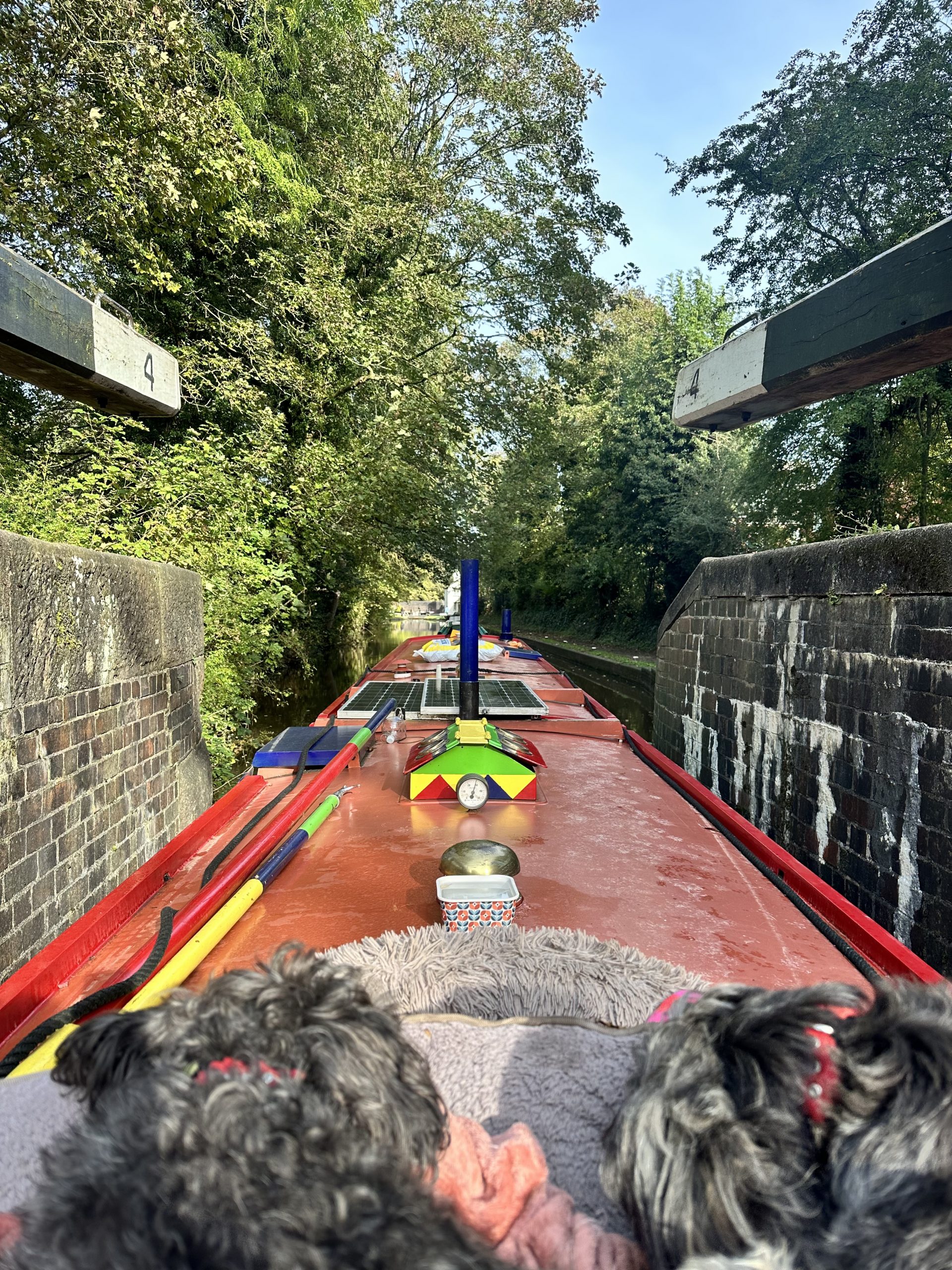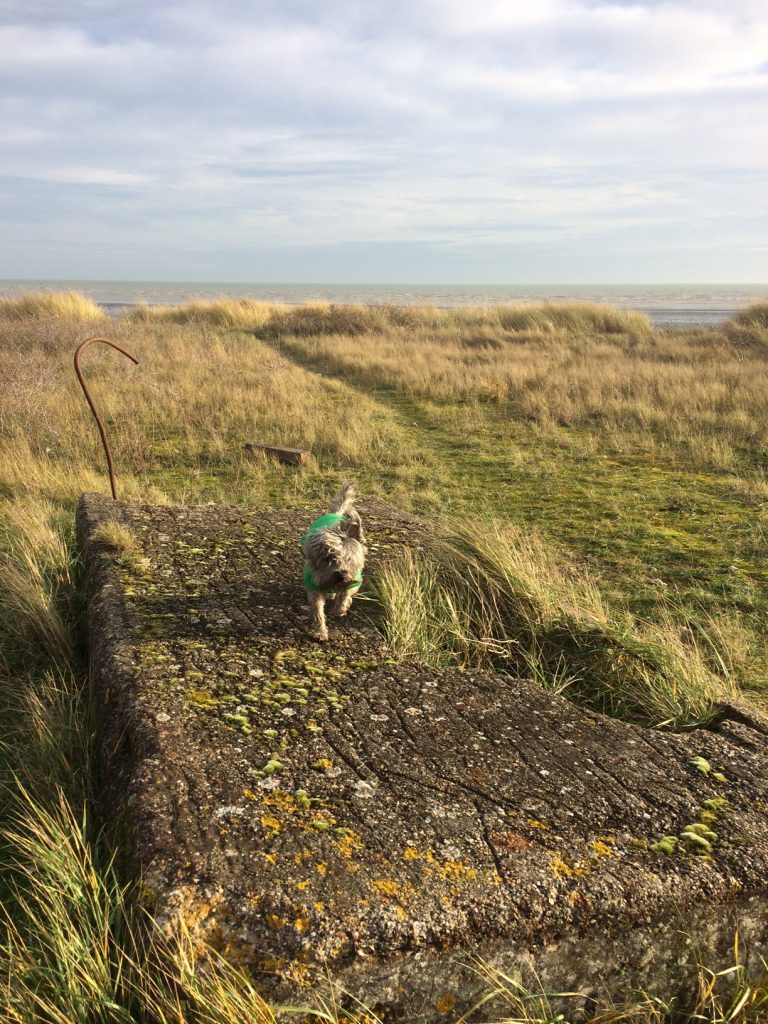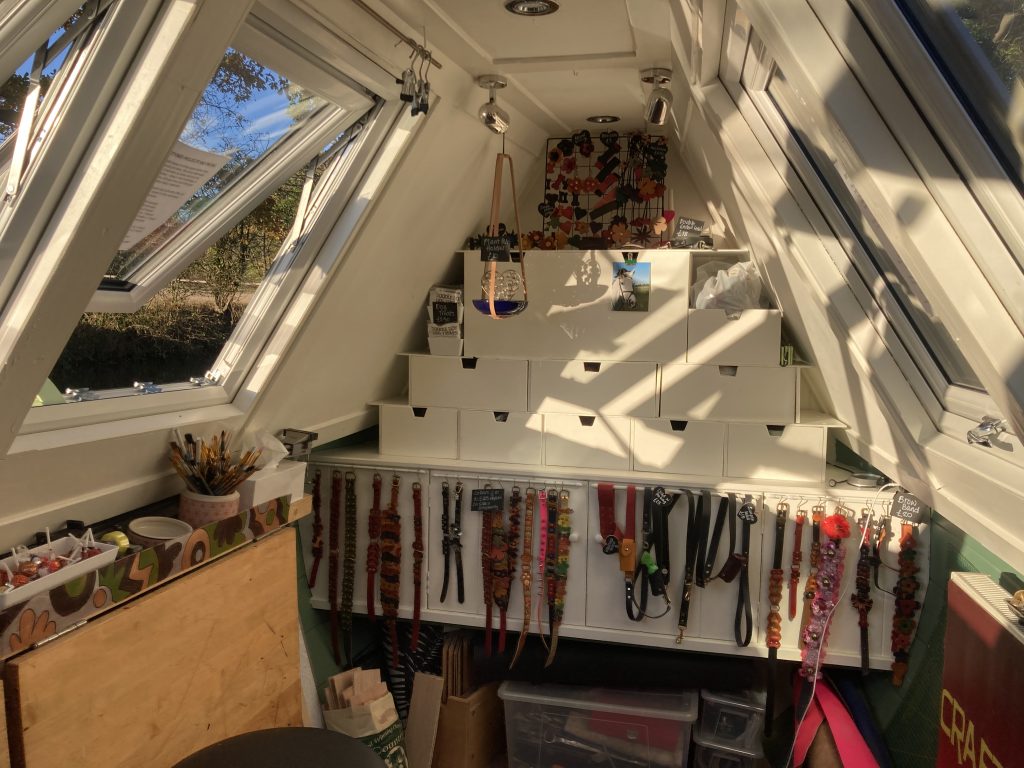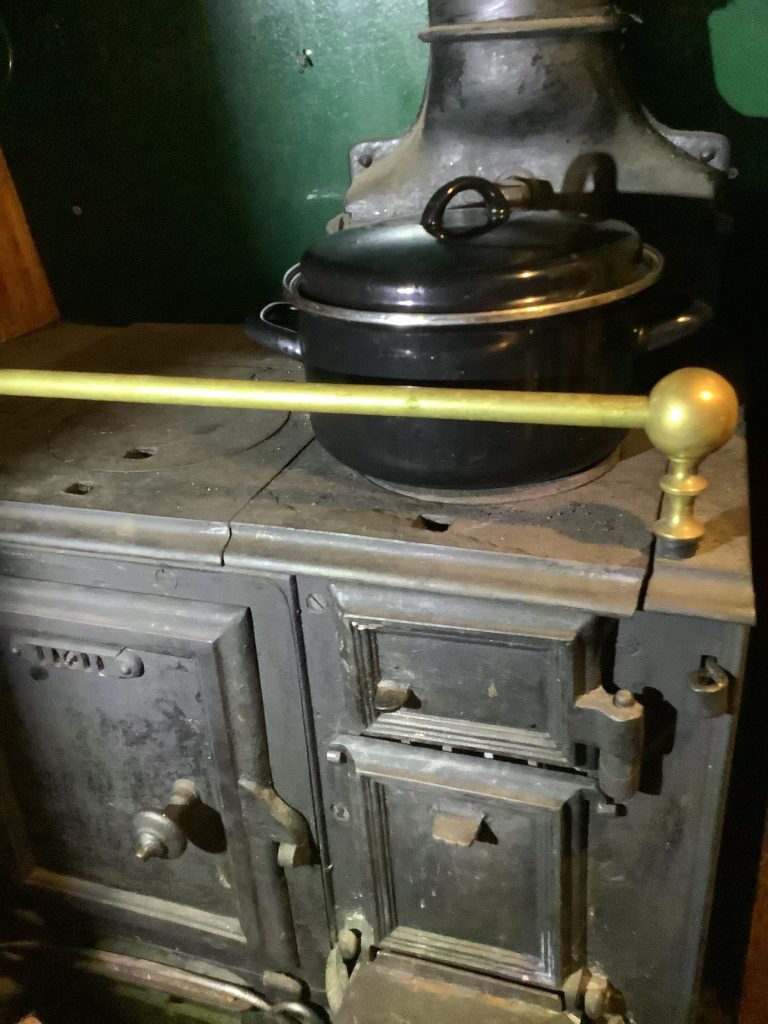There are lots who post on socials about how wonderful life is on the canals. I feel these posts can be a distortion as they’re missing some of the crucial information about the more gritty side of boating!
I was asked recently by someone who is planning to live onboard for any useful hints and tips for living on a boat. To be honest, if you ask any boater for their wisdom about living onboard, you’ll likely get a pretty comprehensive response!
After more than 14 years of living on board and well over half a lifetime spent around boats for family holidays and boats generally I realised I have a lot to say!
To respond I sat down and had a really good think. I ended up with quite a list of things to think about … having written it I thought it was a waste not to share. So here are my personal pearls of wisdom!
Please do comment to this post if you have more to add!
Buying a Boat
No matter what, do not buy a boat without getting a boat survey done. The survey will cost about £500 and will be at your cost BEFORE you even decide to buy the boat. You normally view, make offer (subject to survey), get survey and then buy subject to survey.
The survey will tell you the thickness and condition of the hull which is probably the most important thing to know as this is about whether the boat will stay afloat or sink in the future.
The Boat Safety Certificate must be present and in date.
Facilities on the boat need to include as a minimum (imo and in no particular order of importance)
- Inverter with 240 and 12 volt power
- Battery charger and decent leisure batteries (although they need replacing roughly once every 4 years and cost around £110 each),
- Gas lines and gas bottles (check gas bottles will be left by previous owner as they are worth over £50 each to replace and these days you need to swap an empty gas bottle with a full one to get them filled).
- Heating of some sort. Normally a fire – but get the fire checked out properly as this can be an expensive item to replace if its on its last legs.
- Oven
- Shower
- Water pump
- Fridge is a luxury (and you probably wont have this switched on in the winter (uses too much power) – you’ll use the front deck). Ice and ice cream are just the stuff of dreams.
- Washing machine is also a luxury and uses a lot of water.
- Dishwashers, microwaves and hairdryers are the stuff of legend for most boaters. People who have these will have spent the equivalent of a small house on buying their boat!
I don’t know what your budget is but Apollo Duck is a good place to research prices and what you’re likely to get for your money. Also visit a few large marinas so you can see a lot of boats on the same day. Look at a lot of boats before buying one!
I would probably recommend buying via a broker initially as this way you will have a someone who cares about their reputation as a middle man to handle the sale and ensure you get the right paperwork and information. Even if it is more expensive to buy this way.
Boat maintenance
It is by far the best idea to get to know your own boat and boat engine by doing work on it yourself. This means that you will need to allocate quite a chunk of time each year to do so. A lot of boaters will take a minimum two week period each year to just do boat maintenance.
The things you’ll need to do (unless you can afford to pay someone) will be:
- Boat engine service including oil change and fuel filters. If you are new to your engine, pay someone to do the first service and watch them do it. Take notes.
- Remove water from bilge and clean/de rust the area at least once a year.
- Painting. Huge job! Boat must be covered in paint in order to stop rust.
- Water pump replacement (they tend to go about every two years, sometimes more)
- stove cleaning and blacking
- Boat blacking (this is a big one and needs to be done regularly to keep the hull in shape especially if its an old boat. You need to figure every two years budget minimum £500 per blacking. More if you get a big boat.
- Gas locker painting (its a horrible tight hole that no one sees, but it gets rusty and needs regular attention)
- Stern gland and repacking it and greasing it. (Not to be ignored if you don’t want the boat to sink!)
- Cleaning the boat. If you care about your boat and want it to be your home for any length of time then you need to give it a wash fairly regularly. This is also a good time to monitor rust patches and fix things before they get out of hand.
- Sundry other things, like leaky windows, airing bedding (it can get damp in the winter because you really can’t stop the cold air on the floor in the bedroom from reacting with body heat).
- Change batteries. Depending on how well you treat them, batteries can last between 4 and 6 years. There are different kinds of batteries – lithium are expensive but last longer, charge easily and don’t mind being low. Regular lead acid batteries are cheap (roughly £100 each) but need to stay topped up to be healthy. Battery health will become an obsession.
Something you might be able to learn (but I haven’t yet in 15+ years of living onboard) is electrical matters. You will likely want solar panels to help top up batteries and wiring generally in the boat can be a bit complicated. This is something you may well have to pay an expert to help with.
You will need a really good tool box and I would highly recommend going on a boat maintenance course to get a feel for things. River Canal Rescue (RCR) run a good one.
The lifestyle
Because of the rules for continuous cruisers some of the things you will have to rethink/sacrifice will include regular exercise classes or gym as well as social groups or meetings – local pub, art classes, yoga, etc.
Socially, the canal is lovely but unless you are travelling with another boater you will find that you can’t easily have any regular contact with other people. If you are travelling alone, you will find long periods of time when you are on your own. And if you moor up near other boaters, sometimes they‘ll be lovely and you will have a nice time. Other times they will be a pain in the neck and you will find you want to move on sooner than you planned!
You can feel quite isolated at times, especially when moored in a remote location. It is a good idea to keep in regular touch with one or two key people. A lot of time there is a poor phone signal on the canals so we mainly communicate by text or WhatsApp.
Health
Doctor, dentist and such are likely to be complicated unless you can use someone else’s address to register… at which point, bear in mind that you may find yourself travelling quite a distance when you need to see them. For example I am currently over an hours drive away from both my doctor and dentist.
Post
This can be complicated. Ideally find someone who lives on land who is prepared to let you use their address for things like bank, car/boat insurance, etc. You can arrange a PO Box but you would still need a physical address to do so, and then the PO Box can be expensive. I had one once, I think it cost around £250 for a year. I use several different addresses for different purposes.
Using the boat
Everything that goes on the boat must come off in some form… and vice Versa so for example
Toilet – you will be handling your own poo! Whether through a pump out, Elsan or compost type of toilet.
Fuel
Diesel – you will need diesel to move and possibly for heating.
Coal – in the winter you can expect to go through between 20 and 40 bags of coal depending on how much you use. This stuff is messy, causes a lot of ash and dust during winter months.
Wood – DO NOT BURN WET WOOD! Its dangerous, not just for you, but for others nearby who have to breath in your wood smoke. In a lot of built up areas, this fuel is now banned. You can burn well seasoned dry wood but likely you’ll have to buy this in as there isnt space on a boat to store large quantities!
The good news is that there are Fuel Boats who can deliver this to you if you are in the right area for one. Roach Coalboat is one. Search on Facebook or check here for his movements.
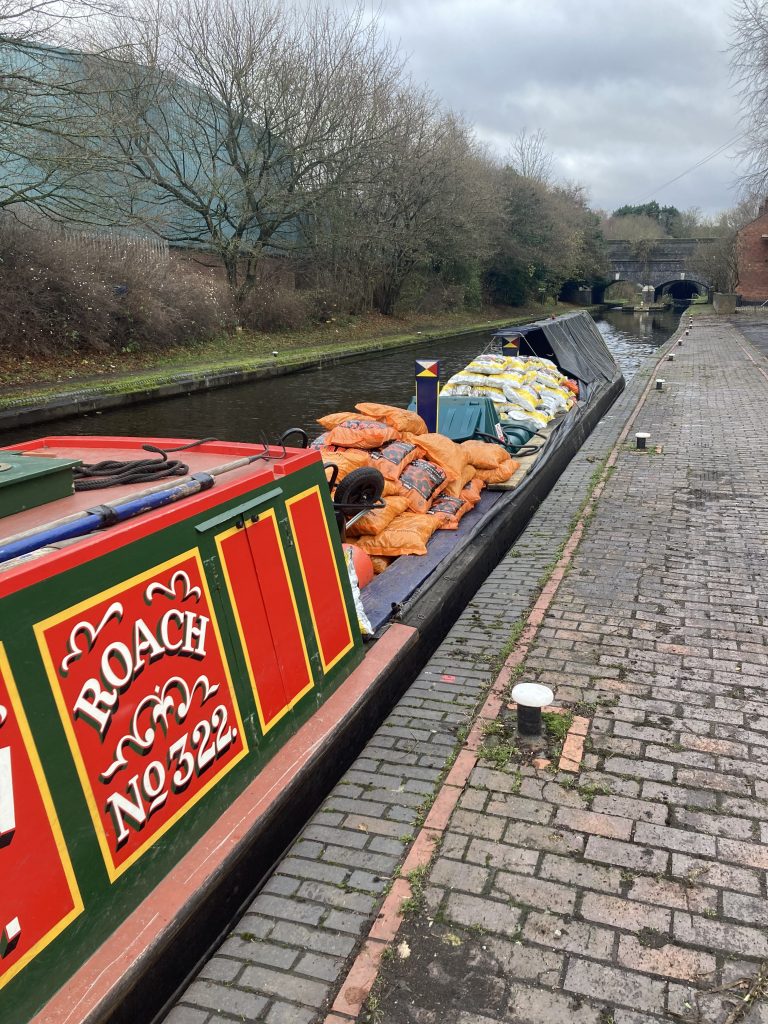
Water – you will need water in varying amounts for showering and cooking etc. Water points can be quite a distance from each other and you need to plan journeys around it. You will find that having a shower every day, for example, is not feasible. To be honest, most boaters I know probably have a full body wash no more than once a week.
Gas – you’ll need this for cooking and possibly water heating if you don’t or can’t use your engine to heat water. Hot water is a luxury (see above).
Moving the boat.
Single handed boating is easy once you get used to it but there are a lot of things to know about boating and moving the boat generally which you need to be aware of. A helmsman course is highly recommended. As well as hiring a boat for at least a couple of weeks before making decision to buy one. Recommend that boat hire takes place in winter to give you a feel for how things are when the weather isn’t so amenable!]
This is an ancient system that is mostly over 200 years old so not too surprising that the locks can be heavy and hard to use.
Canal and River Trust are the charity responsible for managing and maintaining the canal network and do a great job in keeping the system open most of the time but between planned stoppages (lock, wier and canal channel maintenance), natural events (fallen trees, overgrown plants, floods, etc), and human stupidity (fly tipping, vandalism, lock misuse, etc) there will be times when you just can’t get to where you wanted to go.
… but your boat movements will still count so its essential to keep an eye out on stoppage notices on the Canal and River Trust website as you will need to factor these in to your planned journey.
If you want to travel with a car then you need to factor in time to get car moved too. As a minimum you should expect to move every 14 days in the winter and more in the summer (unless you are on a 24 or 48 hour visitor mooring) and moving day will take ALL DAY. It just will! It always does. By the time you have got water, emptied loo, emptied rubbish and recycling, done locks and generally sorted boat out and got car the day will have vaporised!
Here is some guidance from Canal and River Trust about moving boats –
Boat license
The license and insurance is your responsibility from the day that you buy the boat. You can buy a license as a continuous cruiser but you must move the boat and stay within the guidance of Canal and River Trust to be able to renew the license.
Insurance is also something to budget for and is essential for obtaining a boat license. Most important is to insure the boat against sinking or causing damage to other boats. Whether you insure your possessions or not is at your discretion.
Working while living on a boat.
Going to work and living on a boat can be very hard to work out. At times you might be near your place of work and have a reasonably easy time of it. More often or not you won’t be. In the winter it’ll be dark when you get up and dark when you get home. This means quite often a long dark walk along a tow path to get home.
If you have a physical job and need to shower frequently you will either have to move often or find somewhere with a shower. Gym or friend (but all of this is temporary as you’ll be needing to continually move boat).
You will not be using things like hair dryers or irons often, if at all. They use too much electricity so if you need to look ‘smart’ for work this is also something to bear in mind.
Between the months of October and March you can be pretty sure that your main foot wear item will be wellies for outside and slippers for inside. The mud can be overwhelming and unrelenting. Getting washing done and keeping clean is a constant challenge.
Other boaters
I’m sure you know already that there are lots of Facebook groups and other online resources for you to seek out which will give you more information and other peoples thoughts on things. As well as an opportunity to get involved with volunteering to help maintain the canals and find other like minded souls.

